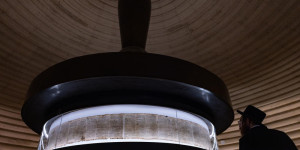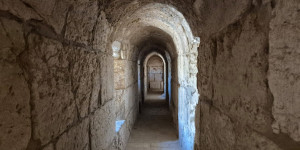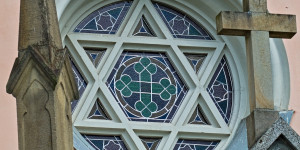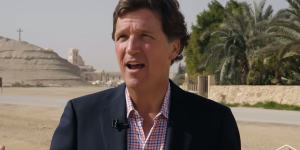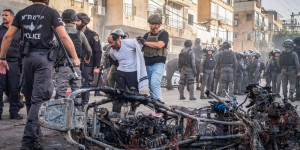Inadequate shelter – Communities in north and south complain about lack of proper shelters as Iran continues to fire ballistic missiles
The government is installing larger and stronger shelters in the central metropolitan areas
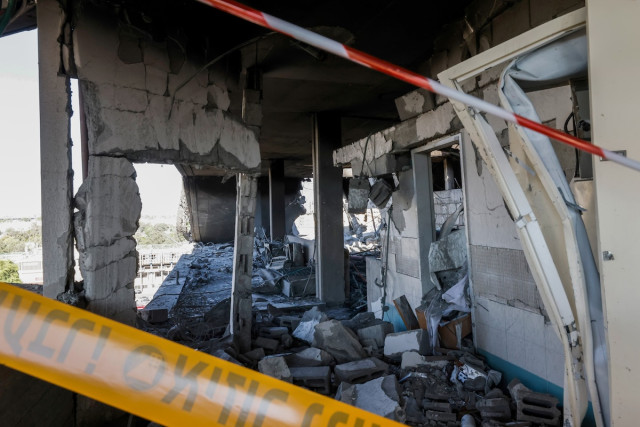
Throughout the Iron Swords War since Oct. 7, 2023, the government installed many shelters in communities along the northern border with Lebanon, designed to provide protection against rocket fire from Hezbollah forces.
Now, after it was revealed that the Home Front Command has acknowledged that the shelters are not suitable for protecting against ballistic missile attacks, many of the northern residents are angry with the government.
The Home Front Command has even said that an internal staircase or an interior space in a house could provide better protection than the open shelters.
In some cities in the north, municipal authorities have even begun blocking the entrances to the shelters, angering many of the residents whose older homes do not contain the hardened shelters required by newer building codes.
“Nobody here has anywhere to go but to these shelters, and now they’ve closed them for us,” Sheikh Muhammad Salem, a resident of the area, told Ynet News.
However, some of the regional leaders along the northern border were unaware that the shelters do not offer adequate protection, and only found out after videos of Akko Mayor Amichai Ben Shlush instructing his constituents not to use them were shared on social media platforms.
Moshe Davidovich, chairman of the Forum of Conflict Line Settlements and head of the Aher Regional Council, told Ynet, “No one informed us that residents were not supposed to use these shelters.”
In the Bedouin communities of southern Israel, and in many Arab communities throughout the country, there is also a lack of shelters, through a combination of a lack of government support in providing public shelters, as well as a tendency to engage in illegal building of homes, which do not have the required safe rooms.
Residents of these communities have inadequate protection, and often the nearest shelter could be in a public school or municipal building located kilometers away.
The Arab communities say that their requests for public shelters are often overlooked, despite repeated promises over the past few years to provide them.
At the same time, after hundreds of interceptions of ballistic missiles, many times occurring over the territories of Judea and Samaria, Israeli residents of settlements in those territories are also demanding the government provide shelters.
Yossi Dagan, head of the Samaria Regional Council, is demanding the installation of safe rooms and shelters in all the settlements of the territories.
Several of the newer settlements in Judea and Samaria only contain residences of mobile homes, without the shelters required by newer building codes. As in the Arab and Bedouin communities, many of these were built or installed without legal approval, and thus, the buildings do not contain safe rooms. Over the past week, dozens of fragments of interceptions and parts of Iranian ballistic missiles have fallen in Samaria.
In one incident, a fragment of a missile fell into the playground of a school in one of the settlements in Samaria. In other, a fragment of an interception fell on a synagogue in one of the communities, and fragments of interceptions have also fallen on vehicles and houses throughout Samaria. In total, more than 100 fragments of interceptors and missile parts have fallen in Judea and Samaria, with the largest being the size of a bus.
“Tens of thousands of people are without protection in Judea and Samaria, which has become the interception line of the State of Israel,” Dagan said. “Every night, parts of interceptors fall on houses, yards, and vehicles. We expect the state at this difficult time to approve the construction of public protective spaces, as is required and as has been done everywhere in the country.”
He echoed the words of other regional leaders, saying, “We demand from the government: Budget for the protection – before the next disaster. It's not a political issue. It's a national responsibility.”
The calls come after the Defense Ministry and the IDF Home Front Command decided to station dozens of portable public shelters in cities in the Gush Dan (Greater Tel Aviv) area which lack public shelters. The shelters will reportedly be closed shelters equipped with heavy blast doors, better able to protect against ballistic missile impacts than the smaller open shelters placed around the Gaza Envelope, which were designed to protect against the smaller rockets launched by Hamas.
The leaders of the outlying communities have claimed that the government is favoring the wealthier communities in the Tel Aviv metropolitan area, and ignoring their plight, despite decades of government encouragement to increase settlement along the border areas and in the Judea and Samaria region.

The All Israel News Staff is a team of journalists in Israel.



